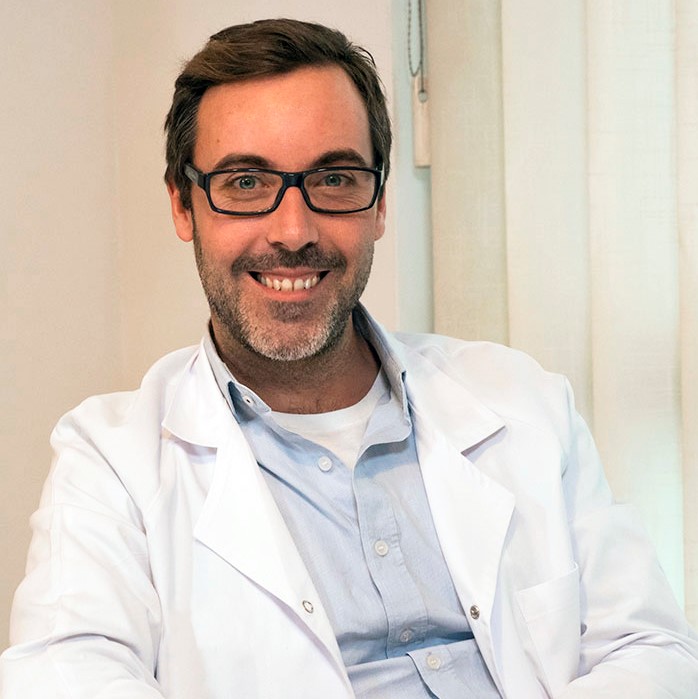2019 HDSA Human Biology Fellow
Movement Disorders Unit, Hospital de la Santa Creu i Sant Pau, Barcelona
Mentors: Jaime Kulisevsky, MD, PhD
“Neurobiological mechanisms subserving the differential expression and rate of progression of cognitive impairment in Huntington’s disease”
Can you tell us a little about yourself and how you got involved in HD research?
I’m a neuropsychologist at the Movement Disorders Unit at Hospital de la Santa Creu i Sant Pau in Barcelona. Since the very beginning of my professional career, I’ve had the opportunity to work with an amazing team of talented professionals headed by Prof. Jaime Kulisevsky. Throughout my time with this group, they have motivated my creativity and desire to learn and given me the opportunity to conduct my own research. A few years ago, coinciding with the nomination of Prof. Kulisevsky as Spanish PI of the European Huntington’s Disease Network (EHDN) Registry study and coinciding with the start of my position as Spanish coordinator of the EHDN, we started a multidisciplinary clinic dedicated to Huntington’s disease (HD). I have always been fascinated by HD, both from clinical and scientific points of view, as well as by the connection forged between researchers, clinicians, individuals affected by HD, and their families. Since then, my professional life has been totally dedicated to HD, having participated not only in conducting several research projects and clinical trials, but also in collaborative social and medical projects in the Latin American HD communities and with patient associations.
In layman’s terms, please tell us some highlights about your HDSA-funded project. What is the potential impact of your project on HD research?
HD unquestionably brings about cognitive changes. Exhaustive evaluation of affected people illustrates that although some cognitive aspects are shared by practically all patients, in other cases, the cognitive changes differ greatly in the form they take and in the speed with which they progress. These differences cannot be solely attributed to CAG repeat length, age, education level or disease duration. My work focuses on understanding what other environmental or biological mechanisms may contribute to clinical expression of HD that could account for variability of cognitive decline in people with HD. Specifically, I have focused on proteins that, similar to toxic mutant huntingtin protein (mHTT), also cause damage to brain tissue in other neurodegenerative diseases. Thus far, the data shows us that, indeed, beyond the effect caused by mHTT, other proteins play a transcendental role in the cognitive variability of patients. This has important implications because it shows us that in addition to mHTT, we must consider the possibility of targeting other proteins for therapeutic intervention that undoubtedly contribute significantly to the way HD is expressed.
What do you like most about your work or the HD research field, and what is your biggest challenge?
Without a doubt, the best thing about working in the HD field is the individuals who come to the clinic, their families, and the entire community of people involved. Absolutely every day these people teach me something important about life, about moving forward, and about how our existence can be understood. Through the years I have met wonderful people through professional and personal interactions that, without a doubt, have all left a mark on me. At the same time, at a more scientific level, HD is an exceptional model for studying a highly complex process that presents an immense challenge to the people it affects. For me, this is an unprecedented motivation to keep going in this field and one that makes my work fascinating. In summary, HD has allowed me to achieve something that not everyone achieves: every day I go to work with a huge smile, enthusiasm and motivation to continue. Thinking about the future, two greatest challenges come to mind. The first is to be able to contribute to the way we understand and treat this disease. The second, and perhaps more important, is to ensure that regardless of how affected individuals arrive at our clinic, they always leave our consultation with hope.
When you’re not working on HD research, what do you do for fun?
I am a tremendous enthusiast of surfing and windsurfing so I try to dedicate my free time to these sports and to travel to the most beautiful places where I can practice them. Unfortunately, in times of the pandemic, I have not been able to enjoy them as much so I have dedicated part of my free time to trail running, something that I also love. But since not everything can be sports, other passions of mine include cooking, for myself and for the people in my life. It gives me a moment of great tranquility for my somewhat hyperactive mind. And of course, following Spanish tradition, I like to enjoy the sun while having a drink with friends on any terrace in Barcelona or on the Costa Brava.
What has the grant support from HDSA meant to you?
Obviously, receiving this grant has brought a lot of joy because somehow, an extremely reputable institution such as HDSA read my ideas with interest and put their trust in me with this support. This is a great responsibility for me and a great motivation. On a professional level, this fellowship has provided greater independence in my work and allowed me to manage my own project and resources to achieve the agreed upon objectives. The presentations of the preliminary results that I have made in different national and international forums have obtained great recognition. In addition, different international entities dedicated to HD have contacted me to show interest in my project. The work I’ve carried out thus far has laid the foundation of an important line of research within our group that obviously will not end with the end of this project, but rather has served to define the starting point of future research.

 Dr. Saül Martinez-Horta
Dr. Saül Martinez-Horta 